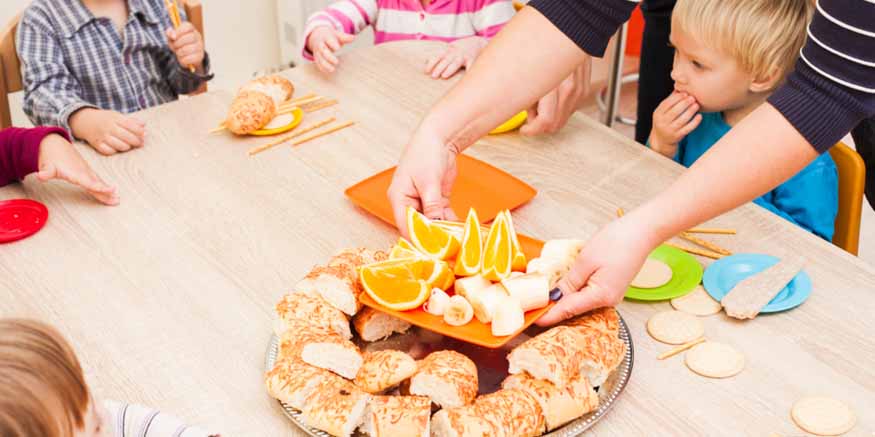Children’s mealtime habits play a crucial role in their overall health and development. Ideally, mealtime should focus on healthy nutrition and bonding between parents and children. Unfortunately, mealtime, like many other aspects of our lives, has been marred by electronic devices. Mixing mealtime with watching television can significantly hurt the health of our little ones. It can lead to unhealthy dietary choices and a lack of awareness about hunger and satiation cues. Studies suggest that children who eat while watching TV tend to consume more ultra-processed foods and fewer nutritious options like fruits and vegetables. Screen distractions can contribute to overeating and an increased risk of obesity. Beyond nutrition, TV viewing during meals also affects family interactions, reducing opportunities for meaningful conversations and bonding. Understanding these impacts highlights the importance of encouraging screen-free meals for healthier eating habits and stronger family connections.
Impact on Dietary Quality
Eating while watching TV results in unhealthy food choices. Advertisements and TV content can influence children’s cravings, leading to an increased preference for sugary snacks, fast food and processed items rather than balanced meals with fruits, vegetables and whole foods.
Reduced Awareness of Hunger and Fullness Cues
Watching TV during mealtime can impact children’s natural ability to self-regulate food intake, increasing the likelihood of overeating. When children experience a diminished awareness of their body’s natural hunger and fullness signals, it disrupts their ability to self-regulate food intake effectively. This can occur due to various factors such as mindless eating or external influences like social pressure and advertising.
Increased Risk of Obesity
Studies have consistently shown that eating while watching TV can lead to higher calorie intake, weight gain and an increased risk of obesity. This pattern contributes to long-term health risks, improving eating habits is an essential practice for maintaining a balanced diet and overall well-being.
Detached from Family Interactions
Mealtime is one of the best opportunities for family bonding, sharing experiences and teaching social skills. When TV or screens take over, meaningful conversations are reduced and children may miss out on developing communication and emotional intelligence.
Tips That Help Kids Reduce Screen Time During Meals to Stay Healthy

Involve Kids in Meal Preparations
Giving children a role in selecting and preparing meals can make them more interested in healthy eating. This hands-on experience helps them understand the importance of nutrition, try nutritious foods willingly and build essential life skills.
Educate Them About Food Choices
Use storytelling or interactive activities to make learning about nutrition enjoyable. By limiting screen time during meals, parents can help children develop better eating habits and minimise the disadvantages of watching TV for children.
Encourage Mindful Eating
Teach them to focus on their food, chew slowly and savour every bite. Explain the importance of appreciating textures, flavours and aromas. Turning meals into a sensory experience can help kids listen to their hunger cues, reducing the chances of overeating or becoming too distracted to enjoy their meals.
Engage in Fun Conversations During Meals
Turn everyday meal time into moments of joy and connection by incorporating engaging conversations. Instead of simply eating in silence, encourage storytelling, playful discussions or lighthearted talk on fun topics. Ask open-ended questions about their favourite activities, movies, books or dream destinations.
Indulge Them in Fun Outdoor Activities
Physical activity is essential for a child’s overall well-being. Encourage outdoor play, whether it’s running, cycling, playing a sport or simply exploring nature. Organise fun family activities to help children develop a love for movement while also strengthening family bonds.
Teach Them Hunger Cues
During mealtimes, encourage children to pause and reflect on their hunger levels. Ask them, “Are you truly hungry, or do you just want to eat because the food is in front of you?” This simple practice helps children become more aware of their body’s signals, fostering mindful eating habits that promote a healthier relationship with food.
Such small yet meaningful changes in daily routines can have a profound impact on a child’s overall well-being. Simple practices like making mealtimes screen-free, engaging in fun conversations and instilling mindful eating habits foster not only healthier dietary choices but also emotional and social development. When children eat attentively and savour each bite in a positive dining environment, they learn to appreciate food, listen to their bodies and build deeper connections with their loved ones.
At Mother’s Pet Kindergarten, we believe that a child’s growth extends beyond academics. Holistic development includes nurturing emotional intelligence, healthy habits and meaningful social interactions. By promoting mindful routines at an early age, we help lay the foundation for a lifetime of well-being and strong family bonds.













Recent Comments